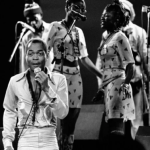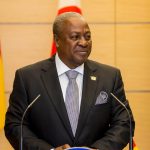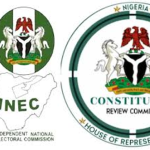
Constitutional Reform in Nigeria: Key Highlights from the 2025 Proposed Bills

As Nigeria prepares for changes to its 1999 Constitution, the House of Representatives Committee on Constitution Review has compiled a summarised compendium of bills designed to reshape the country’s political, judicial, and socio-economic landscape. The proposals, submitted for public input during nationwide zonal hearings, cover a broad range of issues critical to governance and development.
Here are the key highlights:
1. Electoral Reforms
A total of 12 bills target comprehensive changes to Nigeria’s electoral system. Key proposals include:
- Single-day general elections to streamline logistics (HB. 1306).
- Establishment of an Electoral Offences Commission to prosecute electoral crimes (HB. 1219).
- Creation of a Political Parties Registration and Regulatory Commission for internal party democracy (HB. 1217).
- Independent candidacy for elections, removing the requirement for political party sponsorship (HB. 1630).
- Giving INEC authority over Local Government elections (HB. 1649).
- Resolution of all election petitions before swearing-in of candidates (HB. 1154).
2. Judicial Reforms
This section contains 21 bills focused on efficiency, independence, and accessibility of the judiciary:
- Making the Court of Appeal the final court for governorship and legislative election disputes (HB. 1212).
- Introducing a time limit for judicial appointments to prevent leadership vacuums (HB. 907).
- Expanding the number of Supreme Court Justices (HB. 1877).
- Allowing elevated judges to complete part-heard cases to ensure continuity (HB. 582).
- Involving the Nigerian Bar Association in judicial accountability processes (HB. 1886).
3. Inclusive Governance
To enhance representation:
- Reserved legislative seats for women and persons with disabilities in National and State Assemblies (HB. 1383, HB. 1931).
- Mandating 21% female inclusion in ministerial appointments (HB. 1588).
4. Local Government Autonomy
With 14 bills, this section seeks to:
- Grant financial and political autonomy to local government councils.
- Establish independent electoral bodies for local government elections.
- Amend and properly delineate the names and boundaries of some local governments in states like Oyo, Abia, Ebonyi, and Kaduna.
5. Devolution of Powers
Ten bills focus on transferring powers from federal to state governments:
- Natural resource control to be jointly managed by federal and state governments (HB. 1310, HB. 1446).
- State authority over water resources, road tolls, quarantine, and tourism.
- Moving items like criminal records and fingerprints to the concurrent legislative list (HB. 1918).
6. Security and Policing
- A key proposal calls for the creation of State Police, transferring policing powers from federal to state control (HB. 617).
7. Strengthening Institutions
Fourteen bills seek to:
- Mandate timely audit reports and annual census (HB. 770, HB. 2058).
- Separate the offices of Attorney-General and Minister/Commissioner for Justice to reduce political interference (HB. 1697).
- Empower the National Assembly to summon the President or Governors on national security issues (HB. 204).
8. Traditional Institutions
- One bill formally defines the advisory and governance roles of traditional rulers in Nigeria’s constitution (HB. 203).
9. Fiscal Reforms
Two bills propose:
- A special account for borrowed funds and publication of usage reports (HB. 964).
- Timely and public disclosure of audit reports (HB. 695).
10. Citizenship and Indigeneship
Key changes proposed include:
- Introducing Citizenship by Investment (HB. 2059).
- Granting citizenship to spouses of Nigerian women (HB. 1195).
- Recognising indigene status based on birth, marriage, or long-term residence (HB. 2057).
11. Fundamental Rights
Four bills seek to:
- Define and outlaw torture and degrading treatment, including public parading of suspects (HB. 1194).
- Automatically commute death sentences for pregnant women to life imprisonment (HB. 1409).
- Make international human rights treaties automatically applicable once ratified (HB. 1197).
While the 2025 constitutional review presents an ambitious array of proposals, the process is not without serious flaws that deserve scrutiny.
First, many of the most contentious national questions, true federalism, state resource control, and restructuring, have been either sidestepped or watered down. Proposals like joint control of natural resources lack clarity and political will. The state police bill, while a step forward, remains politically controversial and may suffer from poor implementation if not backed by strong legal safeguards.
Second, the approach is often piecemeal rather than transformative. Instead of a holistic rewrite of the outdated 1999 Constitution (which many Nigerians have called for), the review relies on incremental amendments that may not fully address structural deficiencies. The result is a patchwork reform process that risks entrenching old inefficiencies under the guise of progress.
Third, while inclusion and gender equality are highlighted, the proposals on women’s and disability representation remain non-binding and largely tokenistic, without enforcement mechanisms. Similarly, the citizenship and indigeneship reforms sound progressive on paper but do not fundamentally address the deeply rooted ethnic and regional discrimination that continues to divide Nigerians.
Moreover, the lack of grassroots engagement and public awareness around these bills casts doubt on whether the reforms reflect the people’s will or just elite consensus.
In short, the 2025 constitutional reform process shows promise. Still, unless it’s matched with bold political commitment, genuine public consultation, and legal enforceability, it may simply serve as a cosmetic facelift to a deeply flawed foundation.
Read More:
- Kenya Exports 50 Ayrshire Cows to Nigeria, Marking Milestone in Intra-African Trade
- Ghana Government Condemns Anti-Nigerian Protest, Warns Against Incitement
About The Author
Related Articles
Ghana to Rename Kotoka International Airport
Ghana’s government is preparing to rename the country’s main international gateway, Kotoka...
ByWest Africa WeeklyFebruary 4, 2026Russia Congratulates Ibrahim Traoré on Assuming AES Presidency
Russia has congratulated Burkina Faso’s President, Captain Ibrahim Traoré, on his assumption...
ByWest Africa WeeklyFebruary 4, 2026AES Condemns Niamey Airport Attack, Warns of Coordinated Destabilisation
The Alliance of Sahel States has strongly condemned the armed attack on...
ByWest Africa WeeklyFebruary 2, 2026Mali Cedes Strategic Land to Guinea to Deepen Trade Cooperation
Mali has approved the transfer of a strategic parcel of land to...
ByWest Africa WeeklyFebruary 2, 2026












Leave a comment